detail profile carlo cecchi
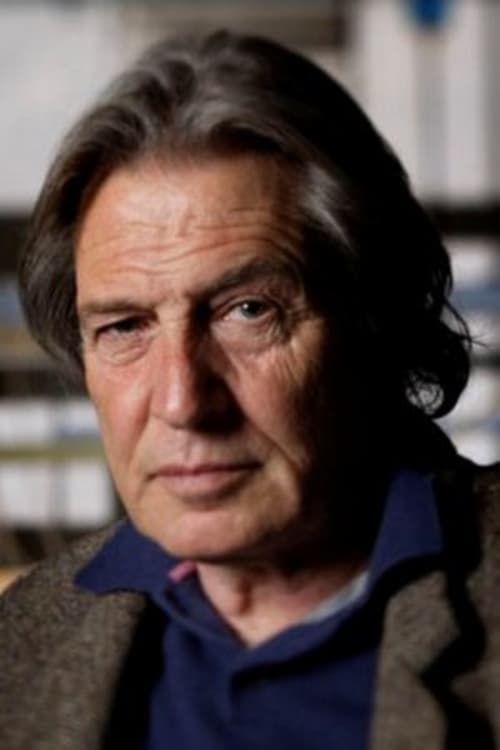
Riwayat Hidup
Carlo Cecchi (born January 25, 1939) is an Italian actor.
Born in Florence, Cecchi studied under the Living Theatre and with the Workshop of Eduardo De Filippo.
In 1968 he made his debut for cinema in La sua giornata di gloria.
In 1971 he directed in Florence a theatre cooperative playing works by Shakespeare, Mayakovsky, Brecht, Chekhov and Molière.
In 1992 he returned to cinema in The Death of a Neapolitan Mathematician by Mario Martone, and later worked for directors such as Bernardo Bertolucci, Pupi Avati, Ferzan Ozpetek.
Description above from the Wikipedia article Carlo Cecchi, licensed under CC-BY-SA, full list of contributors on Wikipedia
Info Pribadi
Peran Yang Di Mainkan Carlo Cecchi
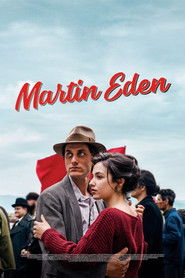 The tale of an individualist proletarian...
The tale of an individualist proletarian...Martin Eden 2019
The tale of an individualist proletarian in a time marked by the rise of mass political movements. In early 20th-century Italy, illiterate sailor Martin Eden seeks fame as a writer while torn between the love of a bourgeois girl and allegiance to his social class.
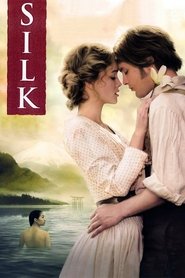 French silkworm trader Herv is married...
French silkworm trader Herv is married...Silk 2007
French silkworm trader Hervé is married to the beautiful Hélène. When an outbreak of disease ravages European silkworms, Hervé must travel to Japan to retrieve healthy eggs. After a long journey, Hervé finally arrives at a village where he can buy them. He becomes infatuated with a young concubine and goes to great lengths to see her again. But, when war breaks out in Japan, the concubine flees, forcing Hervé to return home to his wife.
 Leftist radicalturnedterrorist Giorgiowho fled to Latin...
Leftist radicalturnedterrorist Giorgiowho fled to Latin...The Goodbye Kiss 2006
Leftist radical-turned-terrorist Giorgio—who fled to Latin America in the '70s to escape justice—decides to surrender after hearing about the fall of the Berlin Wall. Determined to lead a comfortable, bourgeois life in his native Italy, he cuts a deal with a shady police chief, getting his sentence reduced in exchange for ratting out former comrades. Once released, Giorgio obsessively pursues his dream of becoming a "respectable" citizen, even if the way is paved with larceny, pimping, drug-dealing, rape, heist, and murder...
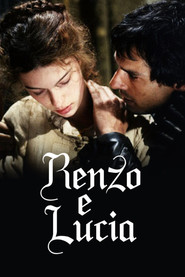 Loose adaptation of Italys national epic...
Loose adaptation of Italys national epic...Renzo e Lucia 2004
Loose adaptation of Italy's national epic, Alessandro Manzoni's “The Betrothed”. In war-torn 17th century Italy, shady feudal lord Don Rodrigo eyes young and beautiful Lucia, who loves—and is reciprocated by—commoner Renzo. The two lovers plan to marry in secret, but Rodrigo discovers it and they are forced to flee their village, becoming separated and each facing many dangers, including the Plague.
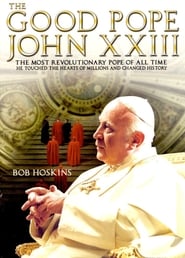 Angelo Roncalli born in Sotto Il...
Angelo Roncalli born in Sotto Il...The Good Pope 2003
Angelo Roncalli, born in Sotto Il Monte in 1881, is known for his profound spirituality as well as his extraordinary goodness from the young years of his life. When he feels a need to serve God, Angelo goes to study theology in Bergamo, and in Apollinare School (Rome) and becomes a priest. During his studies, he gets to know his two dearest friends, Mattia and Nicola. Very soon, most people see marvelous talents in him, including his wide knowledge and a constant readiness for sacrifice. The Holy See makes him go further to bishop and cardinal, and the Holy Father sends him to various places as a representative of the Church. When Pius XII dies on October, the 9th, 1958, 77 year-old Angelo goes to Rome, to conclave to choose a new pope. However, this time, it is him who hears gentle words of Jesus "Tu es Petrus!" ("You are Peter!") and from October, the 28th leads the church as pope John XXIII
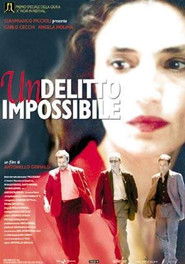 Thriller about the murder by poisoning...
Thriller about the murder by poisoning...An Impossible Crime 2001
Thriller about the murder by poisoning of a famous lawyer.
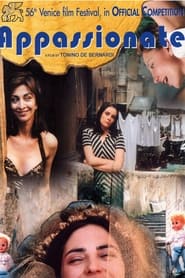 Pina was born in Portugal but...
Pina was born in Portugal but...Appassionate 1999
Pina was born in Portugal but now lives in poor circumstances in Naples. Pina has two daughters, Rosa, who has been wearing a wedding dress since she was left stranded at the altar several years ago, and Caterina, who murdered a man who wronged her as he left the church following his wedding. Caterina winds up in prison alongside Maddalena, a prostitute who witnessed the murder and was inspired to kill a man in her own life who had hurt her. The incidents from these women's lives are interspersed with another story, set in 1929 and filmed in black-and-white, about a man who shoots his wife in a movie theater and must run to avoid the police.
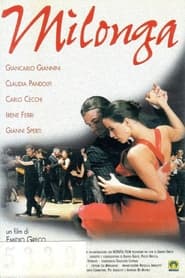 A celebrity is murdered in broad...
A celebrity is murdered in broad...Milonga 1999
A celebrity is murdered in broad daylight in the streets of Rome. Behind the murder lies a much more complex truth. The tracks, surrounded by a sultry milonga, leading to a gay commissioner.
 300 years of a remarkable musical instrument...
300 years of a remarkable musical instrument...The Red Violin 1998
300 years of a remarkable musical instrument. Crafted by the Italian master Bussotti (Cecchi) in 1681, the red violin has traveled through Austria, England, China, and Canada, leaving both beauty and tragedy in its wake. In Montreal, Samuel L Jackson plays an appraiser going over its complex history.
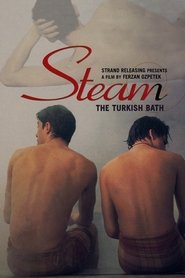 Francesco and Marta run a husbandandwife...
Francesco and Marta run a husbandandwife...Steam: The Turkish Bath 1997
Francesco and Marta run a husband-and-wife design company in Rome. When Francesco's aunt dies in Instanbul he travels there to sort out the hamam turkish steam bath that she left him. He finds a love and warmth in his relatives' Instanbul home that is missing from his life in Italy.
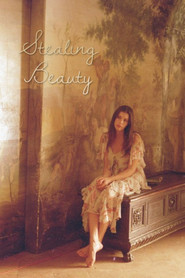 Lucy Harmon an American teenager is...
Lucy Harmon an American teenager is...Stealing Beauty 1996
Lucy Harmon, an American teenager is arriving in the lush Tuscan countryside to be sculpted by a family friend who lives in a beautiful villa. Lucy visited there four years earlier and exchanged a kiss with an Italian boy with whom she hopes to become reacquainted.
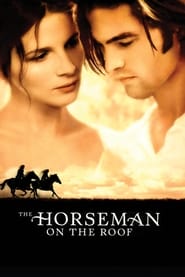 In a time of war and...
In a time of war and...The Horseman on the Roof 1995
In a time of war and disease, a young officer gallantly tries to help a young woman find her husband.
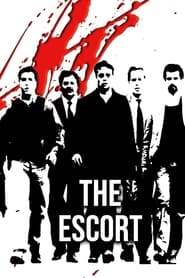 The film shows the difficulties of...
The film shows the difficulties of...The Escort 1993
The film shows the difficulties of an honest, imperiled judge and his bodyguard of four men, trying to clean up a Sicilian town. Corrupt local politicians, working hand-in-hand with the Mafia, will stop at nothing to prevent exposure of their rackets.
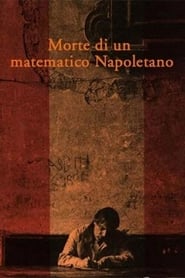 Naples 1959 Pure Mathematics professor Renato Caccioppoli...
Naples 1959 Pure Mathematics professor Renato Caccioppoli...Death of a Neapolitan Mathematician 1992
Naples, 1959. Pure Mathematics professor Renato Caccioppoli, Bakunin's grandson, is a tortured soul. Recently discharged from the psychiatric hospital, left by his wife, and increasingly disillusioned with academia and the Communist Party, he lives his last days with painful detachment.
 Filmed during the annual 24hour endurance...
Filmed during the annual 24hour endurance...Le Mans 1971
Filmed during the annual 24-hour endurance race at Le Mans, Michael Delaney is a Porsche driver haunted by the memory of an accident at the previous year's race in which a competing driver was killed. Delaney also finds himself increasingly infatuated with the man's widow.
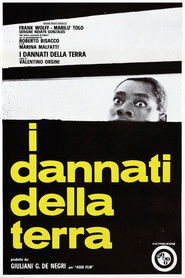 Upon his death a young African...
Upon his death a young African...The Damned Of The Earth 1969
Upon his death, a young African director, Abramo Malonga, bequeathed his first and last unfinished film to his former teacher, the Italian director Fausto Morelli. Morelli, who after seeing the work, is confronted with a confusing, complex and, in part, incomprehensible work. Helped by the young widow of Abramo Malonga and by the notes left by his deceased friend, and again by his personal memories, the Italian director attempts to reconstruct and complete the film. Fausto's work progresses with difficulty, not only because of the problems the film poses for him, but because of the problems that arise in his daily life. After a long crisis, after which he returns to Pisa with his former party companions and abandons himself to love and his own solitude, Fausto takes up the work of his African friend, closing it with a final invention, in which , with a bold metaphor, has refigured the human condition of our time.
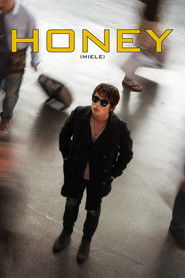 Irene nicknamed Miele has devote herself...
Irene nicknamed Miele has devote herself...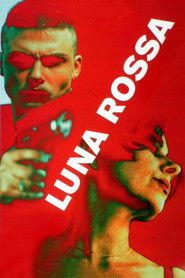 The downfall of a powerful Mafia...
The downfall of a powerful Mafia... Shunned by his church a seminary...
Shunned by his church a seminary...